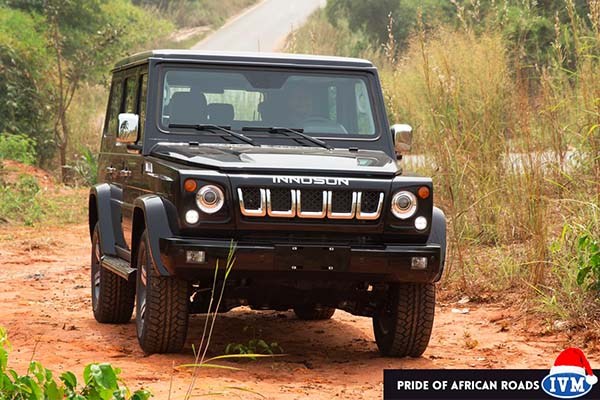
Car maker, Hyunda,i has reached an agreement with the Federal Government of Nigeria to establish vehicle assembling plant in the country, president Buhari announced on Tuesday.
Hyundai CEO, Mr. Chang Hag Kim was at the state house, Abuja, yesterday where he was received by Buhari, and assured of adequate support to help him make the plant a reality.
“We will collaborate and support to make the investment a reality,” Buhari assured.
Tekedia Mini-MBA edition 14 (June 3 – Sept 2, 2024) begins registrations; get massive discounts with early registration here.
Tekedia AI in Business Masterclass opens registrations here.
Join Tekedia Capital Syndicate and invest in Africa’s finest startups here.
The President further stated that his goal has been to achieve self-sufficiency in the supply of petroleum products within the next three years.
Mr. Hag Kim promised to use his existing resources to set up the plant and the refinery: “We have been building refineries worldwide. We have the biggest in South Korea, with 650, 000 barrels per day capacity. We are also in Venezuela, Iraq and many other places. We would be glad to contribute our quota in Nigeria,” he said.
He also noted that Hyundai has a workforce of 15, 000 personnel globally, and will gladly use it to contribute to the development of the Nigerian economy.
Hyundai Oilbank is an oil refining company established in 1964, with refining capacity of 650, 000 barrels per day. The business portfolio of Hyundai Oilbank and its five subsidiaries include oil refining, base oil, petrochemicals and a network of gas stations.
Saudi Aramco, the most valuable company in the world just acquired 17 percent of Hyundai Oilbank from Hyundai Heavy Industries Holdings for US$1.2 billion. So there is no questioning if Hyundai has the capacity to fulfill its promise on refinery.
However, Hyundai’s plan to establish vehicle assembly plant has not gone well with some Nigerians. The displeasure stems from concern that Innoson Motors, the only indigenous vehicle manufacturing company in Nigeria will have to compete with Hyundai. And at a time when the government is keen on banning every imported product in the name of promoting local products, one wouldn’t blame them.
But in other climes where there are indigenous vehicle producing companies, foreign automakers are also allowed. And the system has enabled healthy competition that cut down the cost of vehicles.
For instance, China has recently opened its doors to many American car producing companies; Ford, Tesla etc. while the U.S, Germany, France and other major car producing countries have been in the deal for a long time. Interestingly, these countries have more than one car manufacturing company. In the case of Nigeria, there is only Innoson, and left to it, Nigeria’s car demand can never be met.
Yearly, Nigeria spends N2.4 trillion on vehicle importation which Hyundai models are significant part of. Although most of the cars imported into Nigeria are fairly used (Tokunbo), having a notable brand establish a vehicle plant will cut the amount of money that goes out of the country annually. And also, having a notable brand of foreign origin established in Nigeria will create choices of new vehicles within reach; where buyers will pay no duties – a cost saving idea, if not that it will hurt indigenous car makers.
Should Nigeria copy China?
In 1994, China issued policy for its Automotive Industry. The “1994 Auto Policy” introduced restrictions on foreign automakers to owning more than 50 percent in any Sino foreign joint venture and also limits the foreign automakers to no more than 2 joint ventures for any single type of vehicle in China. Lexology noted that the 50% + 2 rule was the bane of existence for many foreign automakers.
For years, the 50% + 2 rules were considered as a necessary policy to buy local automakers time to gain the skills, master the technology, and build their brands to allow them to compete before international automakers would be given access to the Chinese market.
Chinese policies on auto-manufacturing and foreign investment was gradually eased as the country attain its goals for the automotive industry. For instance, in 1995, China introduced the “Foreign Investment Catalogue” which detailed the shareholding limitation on foreign automakers. Since then, the Foreign Investment Catalogue has been amended eight times to reflect China’s evolving views on foreign investment’s role in industrial policy.

Generally, the Chinese policy was considered successful. China gradually became the world’s largest automaker, a position it has held since 2009. Having achieved its objective to this degree, China has been relaxing its policy on the automotive industry.
In 2018, Chinese authorities jointly issued the Special Administrative Measures for Admittance of Foreign Investment (2018 Negative List). The 2018 Negative List confirmed the pledge to fully remove foreign investment ownership limits on auto industry over a 5-year transition period.
The relaxation of this rule has enabled foreign companies such as Elon Musk’s Tesla, to establish vehicle manufacturing plants in China, especially NEVs. And there will be more beneficiaries of the short term policy relaxation window.
But while the Chinese strategy brilliantly helped its auto industry to occupy a prominent position on the world stage, peculiarities may hinder it in Nigeria if copied. For instance, Innoson is the only indigenous automaker in Nigeria for now, unlike China that had several vehicle manufacturers competing to get to the top at the same time. There is significantly no other company of Nigerian origin pushing its brand in the auto industry. Therefore, the government cannot reasonably restrict foreign auto investments in the country when the long term production capacity of local manufacturers is not enough to make cars that will go round.



